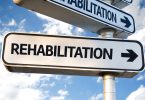Addiction is a widespread problem in modern society. About 64,000 cases of drug-abuse-related deaths occur in the USA every year. Yet, only 10% of people with substance abuse problems ever spend any time in rehab.
Structured rehabilitation is key to getting the recovery process underway.
If you or a loved one is on your way to a drug or alcohol rehab center, you may be wondering what happens in rehab. Read on to find out how you can make the most of it.
What Happens in Rehab Stays in Rehab
Related reality shows may broadcast everyone’s trials and tribulations. Ethical rehabilitation centers have a strict code of confidentiality.
You can rest assured that everything you say and do while in the center remains private. The same goes for the other patients – respect their privacy at all times.
There are a few different kinds of drug and alcohol rehab programs. They consist of the following phases:
- Intake
- Detoxification
- Rehabilitation
- Ongoing Recovery
Let’s look at each of these in turn.
Arriving at the Rehabilitation Center
It’s okay to feel overwhelmed when you first arrive at the rehab center. Everyone is anxious when they first walk through the doors.
Remember these people are here to help you get better. They will guide you through those first steps toward a more fulfilling life.
The process starts right away. Be honest and cooperative with your caregivers and stay in the moment. Don’t think about the months and years to come without your preferred substance.
For starters, you will fill in a questionnaire about your health and habits. The personnel will explain the basic rules of the center.
A medical examination is undertaken to determine the damage you have done. This will help in managing your detoxification process.
Your luggage may be checked for forbidden substances. You will be allocated a room.
Managed Detoxification
During your first few days of rehabilitation, medical staff will track your progress.
Whether you are suffering from drug or alcohol addiction, your body will undergo withdrawal symptoms. Appropriate medication will help to manage these.
Depending on the severity of your symptoms, the detoxification process could last up to 10 days. During this time you won’t have any contact with the outside world.
This is your time to rest up – there’s hard work to come.
The Daily Routine
Once you have recovered from the drug or alcohol withdrawals, you will join the other patients as they go about their daily tasks.
You could be assigned a ‘buddy’ to guide you through what happens in rehab on a daily basis. This person will help you to ‘get with the program’ and you can address all your concerns to them.
Often you may not understand the reasoning behind certain activities or rules. An important guideline for your time in rehab is the mantra ‘Ask, listen and do as you’re told’.
A typical day in rehab starts with breakfast at 8 am. You are expected to be up, make your bed, shower and get dressed before that.
Patients are encouraged to get up early and meditate or exercise before breakfast. Often you will be assigned chores for the day which you can get a head start on by getting up early.
Mealtimes are a communal affair. This helps you to get to know your fellow patients and bond with them.
Healthy meals such as cereals, fruit and toast with spreads will be on the menu. While you may not feel like eating at first, your appetite will soon return as you progress through the recovery program.
After breakfast, there will be two group therapy sessions or lectures with a break in between.
During these times, patients will raise any concerns they have. They could also listen to testimonies from others, or receive instruction on the 12 steps of recovery.
Afterward, you may attend an outside 12-step meeting or enjoy some free time, followed by lunch. Most rehab centers use the 12-step program of Alcoholics Anonymous as it can be applied to any kind of substance abuse.
The afternoon consists of individual therapy with your assigned counselor, exercise classes, and bookwork Bookwork consists of working through a number of assignments in accordance with the stage of recovery that you have reached.
If you have any spare time after all that, you can use it to do laundry, catch up on reading or spend time with fellow patients.
What happens in rehab during the evenings can vary from day to day.
Dinner is served early. After that, you could attend an outside or internal 12-step meeting, watch an appropriate movie, or read and relax. Television is not usually allowed in rehabilitation centers.
If allowed, telephone calls to family members will take place on selected weeknights.
Weekends are a little less structured.
There will usually be at least one external 12-step meeting and extra free time to catch up on laundry and written work.
Those who have reached a satisfactory level of recovery may be allowed a visit from loved ones.
Aftercare
Integrating back into the stresses of daily life is a dangerous time for addicts.
You will leave the security of the rehabilitation center and are surrounded by familiar places and things. This can present opportunities for relapse.
Many recovering addicts choose to spend some time at a halfway house of sorts.
These communal dwellings offer you the opportunity to take part in daily life in a limited fashion. You return to the safe haven every evening with your fellow recovering addicts.
You are free to return to your normal routine after a specified time.
Naturally, 12-step meetings are an ongoing part of any recovery process. You should continue to attend meetings for as long as you want to remain clean and sober.
Finding the Right Rehabilitation Center
It is important to consider your options carefully when choosing a rehabilitation center.
Don’t base your decisions on what happens in rehab centers with 5-star facilities.
Rather choose a center on the recommendation of other recovering addicts who have been there. Visit several places before making your selection and decide where you feel most comfortable.
After all, this could be one of the most important decisions of your life.

















